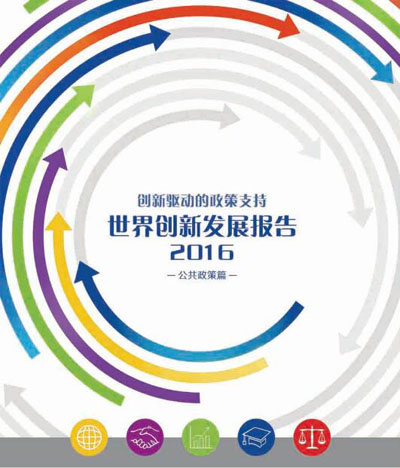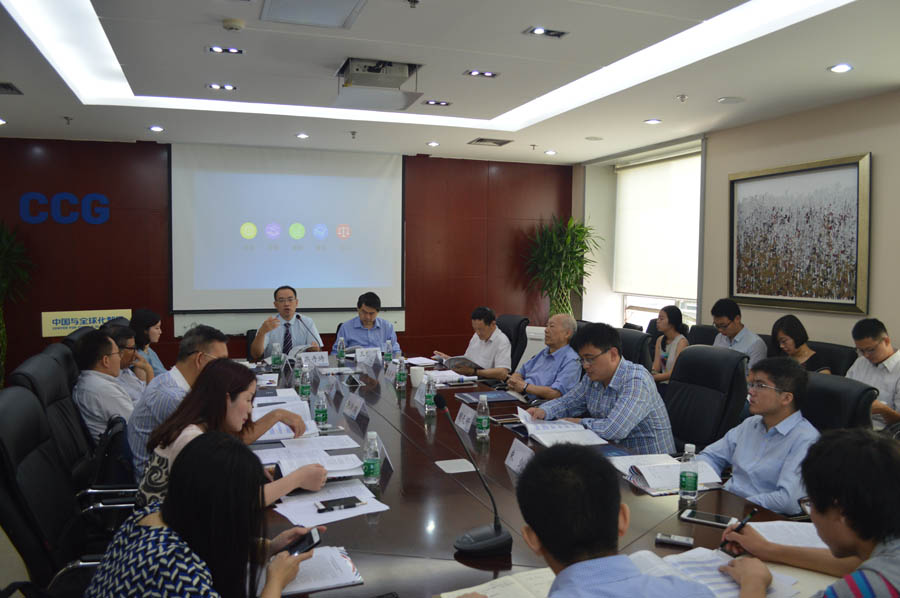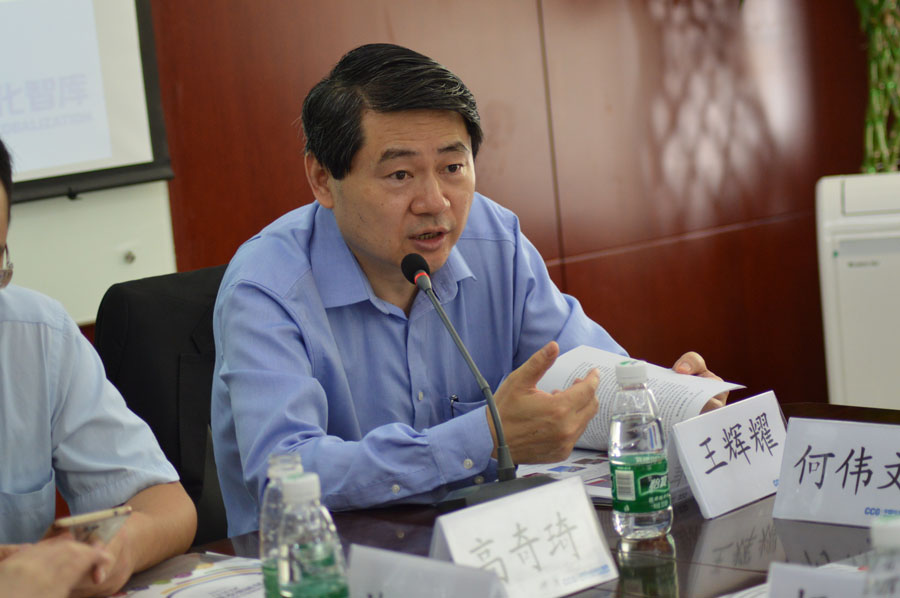CCG new report proposes public policies to boost innovation
June 05 , 2019
On July 28, 2016, a new report that proposes a concrete plan for the Chinese government to promote innovation was released at CCG headquarters in Beijing.

The “World Innovation Development Report 2016: Public Policy” was co-authored by CCG and the Political Science Institute at the East China University of Political Science and Law (ECUPSL). The book, for the first time, introduces the concept of “Innovation Studies” and provides an in-depth review of the best practice in the world in promoting innovation with public policies. It is considered a valuable guidebook to build an innovation-driven economy in China.
In the recent years, innovation has attracted unprecedentedly high amount of attention from the Chinese government for its vital role in the transformation of economic growth mode and industrial upgrading. However, to build an innovation-driven economy, China cannot do it alone but need to borrow experience from other countries to make breakthrough.

“By examining successful experience from developed countries, we hope this book can inspire and advise China to improve its public policies to boost innovation,” said CCG President Wang Huiyao at the releasing ceremony.
He argued that China’s overall science and technology innovation capacity has considerably improved since the State Council issued the Guideline for China’s Medium and Long-term Development of Science and Technology in 2006. The 13th Five-Year Plan, once again, underlines the need for innovation. However, China still faces mounting challenges pursuing stronger science and technology innovation capacity, one of which is the lack of concrete action steps to implement the blueprint.
This new book intends to fill the blank. It identifies 11 ways policymakers can follow to enhance innovation and focuses on five elements to analyze the advantages and disadvantages of each way – overall structure, coordinating organizations, incentive environment, education environment and legal environment. Based on its findings, the book proposes the ways suitable for China to push forward innovation capacity building.

Gao Qiqi, head of the Political Science Institute, noted that to tap its innovation potential, China cannot rely on one individual or team, but needs a comprehensive and strategic plan backed by public policies. Besides the innovation in science and technology, it is also important to pursue innovation in many other aspects such as culture and management system to make China truly an innovation powerhouse. .
The book eventually provides five recommendations on how to optimize public policies to build an innovation-driven economy: 1) to formulate a more systemic innovation plan to expand innovation to more fields rather than science and technology; 2) to establish a coordinating body such as national leading group specifically overseeing innovation affairs; 3) to adopt more incentive policies with the aim to improve innovation quality and efficiency; 4) to cultivate innovation talent and to establish an international innovation alliance; 5) to strengthen IPR protection to create a favorable legal environment for innovators.
As a sequel, more of the World Innovation Development Report 2016 will be released to discuss global innovation from other aspects.






